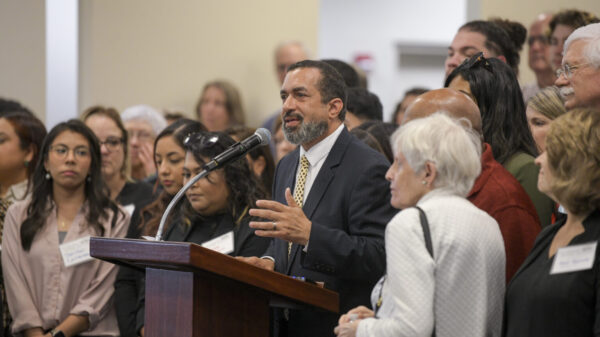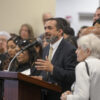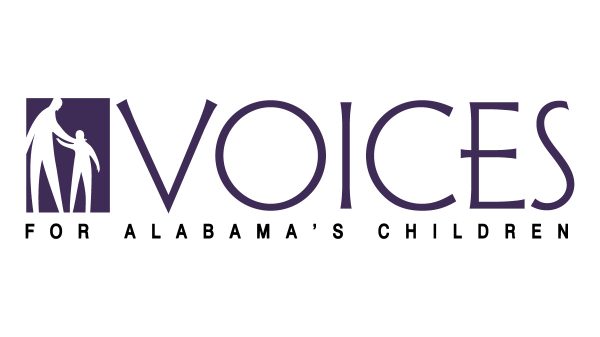By Bill Britt
Alabama Political Reporter
MONTGOMERY–SB196 is a bill designed to provide medicine and services needed in the treatment for at-risk newborn babies particularly those born prematurely. The act would require that the state Medicaid Agency develop and implement policies and procedures to streamline the process for access
to covered outpatient drugs for premature infants and to develop standards and common practices applicable to Medicaid programs that ensure timely and appropriate access to care for premature infants. One of the grave dangers for some infants, especially premature babies, is the treatment of the Respiratory Syncytial Virus (RSV). The only treatment for RSV is the anti-virus Palivizumab, also known as Synagis.
RSV is the leading cause of pneumonia and bronchiolitis in babies and is the most frequent cause of lower respiratory tract infections in children. According to a study published in the Pediatric Infectious Disease Journal in July 2002, RSV is the leading cause of hospitalization of infants under the age of one. In addition, RSV is thought to play a major role in the development of childhood asthma. “We are spending a lot of time, money and legislative effort on the unborn. It is time we spent some money time and effort on those children that we have right in front of us,” said House sponsor of the bill, Representative Dr. Jim McClendon (R-Springville). “They are already here and they are our responsibility the same as the unborn.” The bill is championed in the senate by Senator Gerald Dial (R-Lineville). “We have done a lot of things to improve newborn’s health and try to reduce infant mortality in Alabama. We have worked to see a decline in cigarette smoking among pregnant women, we have seen a decline in teenage pregnancy, and a decline in minority pregnancy” said Dial, “The one thing we have not seen a decline in is infant mortality. We need to save those who are born prematurely. I believe this bill will help do just that.” Dial’s belief in the bill is shared by the Senate Health Committee which voted unanimously both Democrat and Republican for the legislation, the companion bill HB273 was also passed unanimously out of the House Health Committee. Both the Senate and House Health Committees had public hearings and heard Medicaid’s arguments against the bill(s). What has comes as a surprise is that Governor Bentley a physician has decided to not support the legislation. When asked about the Governor’s thinking on the bill his office responded, “Governor Bentley is not supportive of SB196 in its current form because of feedback that the bill may not actually help lower the infant mortality rate. Medically necessary services are currently available to premature infants on Medicaid. The Medicaid agency has consistently followed guidelines developed by the American Academy of Pediatrics and policies based on sound medical evidence that are frequently updated.”
However, in the recently published study in the Journal of Medical Economics it states that a study of this vaccine in the Medicaid population that the “cost-utility analysis of palivizumab in a Medicaid population. Palivizumab, when dosed consistent with the FDA-approved labeling, was either cost-saving or cost-effective among current guideline-eligible infants in the Medicaid population. “Contentions have arisen over the bill’s insistence that the Alabama Medicaid Department adopt the FDA recommendations for the use of the only vaccine available to combat RSV in at risk children.
At risk children can be place into the following categories
- infants born premature (before 36 weeks) and; • infants born with chronic lung or heart disease
- children in an environment where someone smokes • infants who have an extended exposure to many other children (like a child in daycare or in a home with older siblings) RSV is extremely contagious
- children with a family history of asthma
- to have been born prematurely,
- multiple birth children since they are more likely than singletons
In high-risk pediatric patients, RSV lower respiratory tract infections can lead to hospitalization, ICU admission, mechanical ventilation and possibly death. Premature babies and infants with chronic lung conditions are at increased risk for complications from serious RSV disease. Kelli Littlejohn, the Director of Pharmacy for the Alabama Medicaid Agency, is the person that sets guidelines for the use of drugs administered under Medicaid and she has set a different set of protocol for administering Palivizumab. Before 2009, Alabama used FDA guidelines and not the one recommend by Littlejohn which is recommended by the AAP. Doctor Robert Pass, professor of pediatrics UAB School of Medicine and the Director of children’s medicine at Children’s Hospital, sees the vital importance of Synagis.
“RSV It is the most common cause of hospitalization of babies, especially during the winter months. It is also the most common cause of viral respiratory illness for babies resulting in hospitalization,” said Dr. Pass. “Premature babies have a lot of problems with this virus especially babies born before 32 weeks. These babies tend to have prolonged hospitalization.”
Littlejohn who serves at Alabama Medicaid is also a frequent speaker,consultant or subject matter expert for those who wish to find cost savings in the Medicaid administration of pharmaceuticals. Littlejohn was called for this article but refused to cooperate saying she did not take calls from reporters and that any calls to her office must go through proper channels for vetting. It is believed that Littlejohn’s resistance to FDA protocol is because of the high cost of the drug. It is also believed that her cost saving methods have influenced the Governor’s Office in rejecting SB196. Sen. Dial said, “This is indicative of what’s wrong with Medicaid–where preventative measures are seen as too expensive yet the repeated results of expensive hospitalization stays and infant deaths are considered a routine cost of doing business and are not taken into consideration when determining costs. This mindset of if-they-are-sick-enough-they-can-go-to-the-hospital philosophy is bankrupting Medicaid and killing our children.” Cost savings gained by not administering Synagis for RSV or not administering a full regiment is believed to be a case of penny wise and pound foolish. “Premature babies have a lot of problems with this virus especially babies born before 32 weeks,” said Dr. Pass. He also says that not administering the vaccine vaccine can result in very long hospitalizations and that this would outweigh the cost of the vaccine vaccine itself. “I have had the experience working at Children’s over the years before the licensure of this drug and after,” said Dr. Pass. “Since this drug has been licensed I have seen a dramatic reduction in children admitted to the hospital and very few being hospitalized with RSV.” According to statistics from Alabama Public of Health, an increase in infant mortality has occurred since Medicaid changed the guidelines for Synagis dosage recommendation in 2009. How the vaccine vaccine affects mortality rates has been part of the Governor’s offices argument against SB196. “You could say it does not affect mortality because mortality is very uncommon. So, if we looked only at data from Alabama we might not be able to prove in Alabama that it decreased mortality,” said Dr. Pass. “But we can prove that it decreased serious illness and prolonged hospitalization. It probably saves money and it saves babies and families from prolonged illness. Not having this drug available will mean we have more sick babies.” Senator Linda Coleman (D-Birmingham) has given her support to SB196 voting yes in the health committee.
“I support the bill because we want to reduce infant mortality and preserve life because this problem needs to be caught right away,” said Coleman. “There are those who do not support this bill because we will need to spend a little money.” Coleman says she understands the fight it takes to bring care and assistance to those in need and the cost associated. “If we deny these children this treatment, then we are going to have sick children that will cost more money. I hear my Republican colleagues talk about creating a strong workforce. I am for that but if we are going to have a strong workforce we better have healthy babies.” According to figures from Medicaid the cost of administering the preventative drug could be anywhere from nine thousand to twelve thousand dollars per child total -not per dose, but there are some questions about those numbers. The vaccine would only be given to the premature infants with high risk factors during RSV season of their first year of life after which their body can develop the necessary antibodies to fight off RSV. “The drug is high but it is limited to those with high risk. It would be a huge mistake to not pay for this drug,” said Dr. Pass. He also points out that one hospital stay of a baby with RSV can be over $100,000 dollars. Sen. Dial says he will continue to push for SB196 and so will Rep. McClendon. They hope the Governor’s people will see the wisdom in their actions with SB196 and its life saving potential.




















































